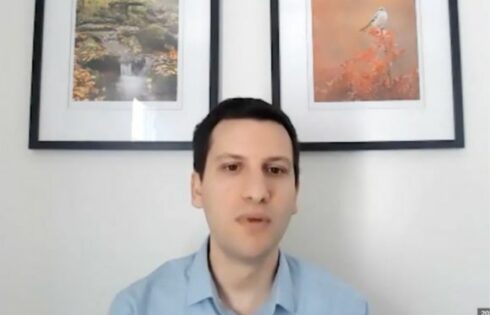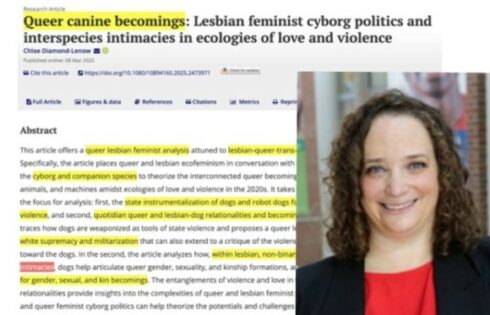
‘We must take active steps to ensure our paper is created responsibly and respectfully’
What in the world is happening to college newspapers these days?
A couple recent incidents suggest that student journalists are internalizing the censorship demanded of them by readers who are easily triggered or simply offended by the basics of journalism.
The Harvard Crimson has yet to tell readers the content of the jokes that provoked more than 70 members of Harvard’s marching band to walk out of its own centennial banquet earlier this month. This is despite the editorial board’s approval of the walkout in a Wednesday editorial.
What we know is that alumni speakers joked about “the necessity of censoring one’s own speech” to comply with the band’s new sexual harassment policy, according to the president of the band’s foundation.
The most charitable explanation, which isn’t comforting, is that multiple Crimson staffers have not asked people at the banquet what the actual jokes were. (I’ve been unable to find video on Facebook or Twitter of the jokes being told or the walkout that followed.)
The more troubling possibility is that at least some of the Crimson staffers know the rough wording of the jokes but have chosen to keep them from readers, to protect them from “inappropriate and offensive” humor, as the editorial described it.
Neither the reporters of the Oct. 17 story nor the editorial board responded to my emails Wednesday night about their knowledge of the jokes’ wording.
MORE: Band freakout over jokes shows ‘Harvard is a new Puritan sect’
At least the Daily Campus at the University of Connecticut, which recently arrested students under a law that criminalizes “ridicule,” didn’t hide pertinent facts from readers in an article on a local government official’s resignation.
Rather, it apologized to readers last week for accurately quoting him.
“I hate black people” was the banner on the front-page article, and it’s still on the online article. The quote is taken directly from the letter chronicling Mansfield Town Manager Derrik Kennedy’s racially charged office conduct, which led him to resign this summer. (The campus newspaper covers local government as well as UConn.)
The subhead makes clear the context: “Mansfield town manager fired after racist comments.” It’s hard to imagine any newspaper putting a different combination of headline and subhead on such an article, especially the printed front page. It couldn’t be better to draw in readers.
And the editorial board couldn’t have groveled any more thoroughly.
“We have heard from UConn community members that the headline caused undue distress,” reads an editorial from the Daily Campus last week apologizing for its newsgathering ways:
The Daily Campus realizes we could have conveyed the main information of the story just as effectively without the unnecessary shock value of the quotation being such a prominent element of the headline. …
We have already had conversations with our entire staff about why this headline was inappropriate. We have encouraged our staff to readily engage in a conversation about sensitive topics in the stories we report in the future. The Daily Campus is aware of the impact our content has on the UConn community. With that, we must take active steps to ensure our paper is created responsibly and respectfully.
MORE: UConn students demand speech codes, mandatory hate crimes course
In other words, it’s promising to bury the most newsworthy part of the story from readers who are less likely than ever to read more than the headline. That’s not only bad journalism, but also a recipe for losing readers.
You can tell readers all you want that someone made “racist comments.” But without specifying what he said – “I hate black people” – you are essentially patronizing readers, telling them they can’t handle the truth.
I’m starting to wonder if college journalism is approaching an inflection point similar to when students started demanding more censorship than their administrators were dishing out. That’s generally traced to the second term of the Obama administration.
College media boosters have long sounded the alarm about administrators suppressing coverage that puts the school in a bad light or simply creates tension on campus. Sometimes this involves professional threats to faculty advisors for campus newspapers.
It’s the driving factor behind so-called New Voices legislation in several states, which seeks to protect the rights of student journalists to control what they publish.
Then Wesleyan University’s student government threatened to defund its newspaper because of a column critical of Black Lives Matter, which helped spark the #SaveStudentNewsrooms movement.
MORE: Wesleyan paper loses funding (again) for column critical of Black Lives Matter
Funding threats from student government leaders, who cower in fear before student activists with bottomless demands for justice, can’t necessarily be fixed by legislation. And the constant pressure on campus newspapers to tread lightly on the delicate sensibilities of student activists seems to be having an effect on their editorial choices.
So to summarize:
The Crimson won’t actually tell you the jokes that made more than 70 band members walk out of their own centennial. Who knows if they even asked reliable sources what the jokes were. (For the moment, The Crimson is standing up to activists who demand it not interview immigration officials.)
The Daily Campus practically goes to confession after telling readers the most important quote from the subject of its coverage. All because some readers complained it was “insensitive.”
I have no idea who the hell is going to defend campus journalism if the journalists themselves refuse to do their jobs.
MORE: Activists furious at Crimson for asking ICE for comment
IMAGE: Brian A Jackson/Shutterstock
Like The College Fix on Facebook / Follow us on Twitter







Please join the conversation about our stories on Facebook, Twitter, Instagram, Reddit, MeWe, Rumble, Gab, Minds and Gettr.